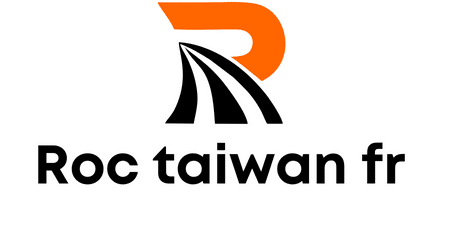How Is AI Influencing the Design of More Efficient Jet Engines for Reduced Emissions?

The landscape of the aviation industry is in a continuous state of evolution, bolstered by technological advancements and innovative solutions. One domain where technology is leaving an indelible imprint is the design and functioning of jet engines. Specifically, artificial intelligence (AI) is playing a pivotal role in engineering more efficient jet engines that simultaneously work towards reducing emissions.
By analyzing a wealth of data to optimize jet engines, AI has the potential to significantly enhance their energy efficiency and sustainability. The aviation industry is now able to harness this technology to model and predict the performance of engines, leading to superior designs and lower emissions.
A voir aussi : What’s the Future of 6G and Its Expected Impact on IoT Device Connectivity?
AI and Jet Engine Efficiency
Artificial intelligence has the ability to collect and interpret vast amounts of data, which can be immensely beneficial in improving the efficiency of jet engines. This section will delve into how the application of AI in aviation can contribute to more efficient aircraft engines.
Jet engines are intricate systems that demand meticulous monitoring and maintenance. This is where AI can step in, providing detailed performance data, predictive analysis, and real-time alerts to preempt potential issues — all of which contribute to enhancing the efficiency of these engines.
Lire également : What’s New in Bionic Eye Technology for Restoring Vision?
AI can meticulously monitor the performance of thousands of engine components simultaneously. By doing so, it can predict when a component might fail or require maintenance, thereby preventing any potential power loss and enhancing engine performance. Furthermore, AI can also optimize fuel burn in real-time during flight, significantly enhancing fuel efficiency.
Data-Driven Design and Models
The aviation industry is employing AI to formulate data-driven designs and models for jet engines. This will provide insight into how AI utilizes collected data to create better, more efficient engines.
AI’s capability of processing and interpreting extensive data sets is instrumental in designing efficient jet engines. AI can construct predictive models based on past data, which allows engineers to make informed decisions during the design process. These models can consider various factors like fuel burn, emissions, noise levels, and overall performance before a physical prototype is even built, thereby saving time, energy, and resources.
Additionally, these digital models can simulate different flight scenarios and operating conditions to gauge the engine’s performance, potential issues, and areas for improvement. As a result, the design process becomes more precise, efficient, and sustainable.
Reducing Emissions with AI
Reducing emissions is a fundamental challenge in the aviation industry. The following part will discuss how AI is instrumental in this endeavor, offering solutions that minimize environmental impact while maximizing efficiency.
Fuel consumption is directly proportional to the CO2 emissions from jet engines. By improving fuel efficiency, AI directly contributes to reducing these emissions. AI algorithms can optimize flight paths based on weather and air traffic, leading to shorter flight times and lesser fuel consumption.
Moreover, AI can monitor engine performance and recommend maintenance when it detects anomalies. Timely maintenance ensures that engines function optimally, reducing unnecessary fuel burn and consequently, emissions.
Sustainable Solutions for Aviation Industry
The aviation industry is continually on the lookout for sustainable solutions. AI provides such solutions by making jet engines more energy efficient, environmentally friendly, and economically viable.
For instance, AI can determine the optimal time for engine maintenance, minimizing any downtime and thereby, saving costs. AI’s predictive modeling can also anticipate the lifespan of engine parts, allowing for timely replacements, reducing the risk of failures, and therefore, avoiding costly repairs or replacements.
Furthermore, by reducing fuel burn and emissions, AI not only makes aviation more sustainable but also helps airlines save on fuel costs, which is one of their most significant operating expenses.
AI: The Future of Aviation Technology
In the realm of aviation technology, AI holds a promising future. By making jet engines more efficient and reducing emissions, AI is already making a significant impact.
The aviation industry’s push towards sustainability is driving the development of AI algorithms which can create detailed simulations and models, predict maintenance requirements, and optimize fuel burn. As these technologies mature and become more integrated into aviation systems, it will lead to even more efficient and sustainable engines.
The advent of AI in the aviation industry is undeniably a game-changer. As AI continues to evolve and innovate, it will undoubtedly continue to revolutionize jet engine design and drive the industry towards a more sustainable future.
Real-Time Predictive Maintenance with AI
The aviation industry is continually seeking ways to improve efficiency and reduce downtime, and the real-time predictive maintenance enabled by AI is proving to be a game-changer in this regard. This section will dive into how AI’s predictive maintenance capabilities are revolutionizing jet engine management and maintenance.
A jet engine is a complex system comprising thousands of components, each with a specific role in the overall propulsion system. Given the complexity of these systems, a small malfunction or failure can have significant impacts on the engine’s overall performance and efficiency.
Artificial Intelligence, with its ability to process and analyze vast quantities of data in real-time, presents a solution to this challenge. AI systems are capable of monitoring the performance of each component in a jet engine, identifying patterns, predicting potential issues, and alerting maintenance teams in advance. This real-time predictive maintenance approach has several benefits.
Firstly, it enhances jet engine reliability by preventing unexpected failures. Secondly, it improves fuel efficiency by ensuring that all components are operating optimally, thereby reducing fuel consumption. Lastly, by predicting and scheduling maintenance in advance, AI minimizes engine downtime, thus enhancing the overall operational efficiency of aircraft.
This application of artificial intelligence has been embraced by leading jet engine manufacturers like Pratt & Whitney, who use AI-driven predictive maintenance to ensure the reliability and efficiency of their engines.
Sustainable Aviation: AI’s Role in Reducing Carbon Footprint
Climate change is a pressing concern worldwide, and the aviation industry is under immense pressure to reduce its carbon emissions. This section will explore how AI is helping the industry to meet these challenges, promoting sustainable aviation through more efficient jet engine designs and operations.
Jet fuel is a major contributor to the aviation industry’s carbon footprint. Thus, reducing fuel consumption is a key strategy for lowering carbon emissions. AI algorithms can help optimize fuel burn in real-time during flight by adjusting engine performance based on various factors like altitude, air temperature, and aircraft weight. This not only improves fuel efficiency but also significantly reduces carbon emissions.
Further, AI’s predictive maintenance capabilities ensure that engines remain in optimal condition, preventing any unnecessary fuel burn due to poorly functioning components. Plus, AI-driven data science can formulate more energy-efficient engine designs, all of which contribute to a decrease in the carbon footprint of the aviation industry.
Moreover, AI can also help to refine flight paths for reduced emissions. Traditional navigation systems can be inefficient, leading to unnecessary fuel burn. AI, however, can analyze factors like weather, air traffic, and aircraft performance in real-time to determine the most efficient flight path, thereby reducing fuel consumption and emissions.
##Conclusion
Artificial intelligence’s impact on the design and maintenance of jet engines is undeniable. Its ability to process colossal amounts of data in real-time, predict maintenance needs, optimize fuel burn, and design more efficient engines is transforming the aviation industry.
AI provides the tools needed for the industry to address critical challenges such as improving fuel efficiency, reducing carbon emissions, and enhancing customer service through reduced downtime. It is clear that AI is leading the charge towards more sustainable aviation, with major industry players like Pratt & Whitney already leveraging this technology for a more sustainable future.
As AI’s capabilities continue to evolve and innovate, it will undoubtedly play an even more significant role in the future of aviation technology. With the pressing need to combat climate change and the increasing demand for more efficient propulsion systems, AI’s role in the aviation industry is set to expand, driving the industry towards new heights of sustainability and efficiency.
